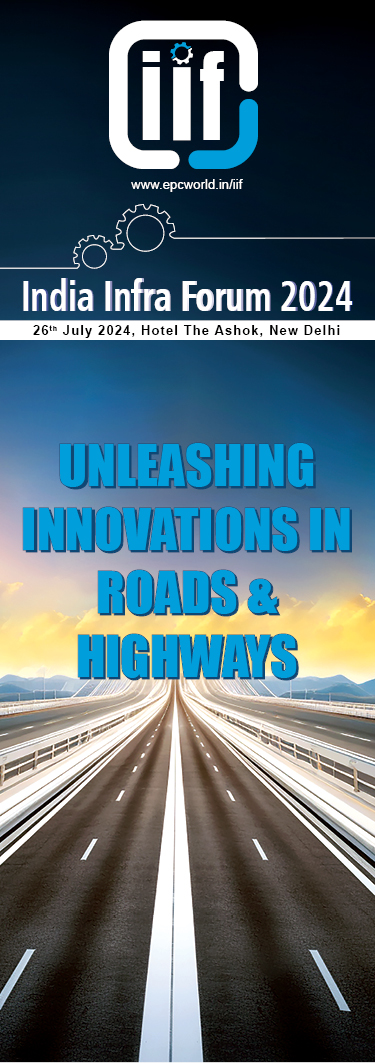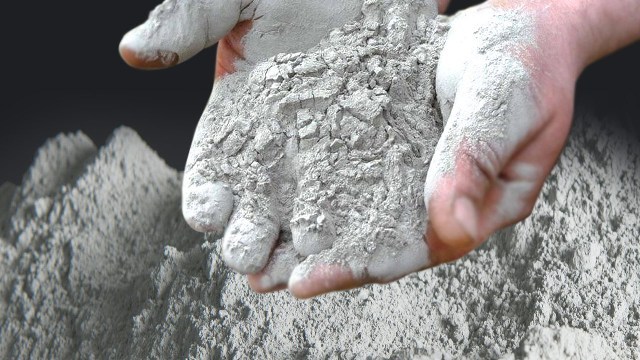The cement industry was going through few challenges, such as extended monsoons, unavailability of sand, hike in raw materials and logistic prices, but now with the ongoing Russia-Ukraine war these challenges have manifold. Coal, petcoke, diesel and raw material prices have increased sharply and the industry is looking at alternative option to keep prices in check
Now, that the Pandemic seems to be in its last leg, the India Inc was hoping for a quick recovery in the economy. The cement manufacturers too were eagerly waiting. The government’s Budget 2022-23 favoured the cement sector. There were big ticket announcement such as fast tracking development of rural infrastructure and extension of real estate incentives. In addition, the government allocated Rs 48,000 crore for completion of 80 lakhs houses for the identified eligible beneficiaries of PM Awas Yojana, both rural and urban; and increased budgetary allocation to Pradhan Mantri Gram Sadak Yojana by 36 per cent to Rs 19,000 crore for the fiscal year 2022-23 from revenue estimate last year. But alas! the ongoing Russia-Ukraine war put a question mark on that. These two countries are the largest producer of coal which is used in the manufacturing of cement. With the ongoing war, supply disruption of coal and raw materials are expected. According to a report by ICRA, Russia accounted for ~10% and ~17% of the international trade in metallurgical and thermal coals respectively in CY2020. Since the start of FY2022, international coal prices have already rallied quite sharply, with spot prices of premium hard coking coal (free on board (FoB) Australia basis) and high-grade thermal coal (FoB South Africa basis) increasing by ~300% and ~125% respectively.
“The sharp rise in costs has led to margin erosion. In fact, power and fuel costs are likely to rise by 35-40% in the current year, while freight cost is set to rise by another 5-10%. Raw material prices, which account for close to 15-17% of total costs, are also set to rise led by rising mining costs, says Hetal Gandhi, Director, CRISIL Research. During the first nine months of the financial year, cement prices in India rose by 3-3.5%, hit mainly by spiralling energy prices. “Cement prices are likely to rise to offset rising input costs but any major uptick will be limited by the recent spree in capacity additions, especially in east and central regions. The price rise is unlikely to compensate for the rise in input costs, thus leading to margin erosion for the players. Despite the fall in margins, the overall Ebitda margins for the industry will stay in the range of 20-22% in FY22 and FY23, above the average levels of the last decade of 17-20%,” Hetal Gandhi concluded.
According to ICRA, the all-India cement production registered a growth of 25% at 290 million MT in 10M FY2022 compared to 10M FY2021. It was higher by 4% when compared to pre-Covid levels of 10M FY2020. The demand picked up in December 2021-January 2022, higher by 14% Y-o-Y during this period following a decline of 3% Y-o-Y in November 2021 due to unseasonal rains and festivities. For the full year, FY2022, ICRA expects 18-20% volumetric growth to around 355 million MT which is expected to surpass pre-Covid levels by 6%, driven by continued strong rural housing demand and pick-up in infrastructure activity. “Commenting on the 9M FY2022 performance of the cement companies, Anupama Reddy, Assistant Vice President & Sector Head, Corporate Ratings, ICRA, says, “Despite the increase in the net sales realisations by 5%, the OPBIDTA/MT declined by 10% Y-o-Y in 9M FY2022 to Rs. 1124/MT primarily due to increase in input prices - the raw material, power & fuel and freight expenses which are higher by 12%, 31% and 5% Y-o-Y respectively. For the full year, the continued elevated costs would push down the OPBIDTA/MT by 16-18% to Rs. 1030-1050/MT in FY2022. The operating margins are expected to decline by 440-480 bps Y-o-Y in FY2022 to around 19.8%-20.2%. While the leverage (TD/OPBIDTA) is improving from 1.5x in FY2021 to 1.3x in FY2022 due to decline in total debt on account of scheduled repayments, the DSCR is likely to witness moderation from 2.1x in FY2021 to 1.8x in FY2022.”
A peek into Q3FY22 performance
Q3FY22 was a bumpy ride for the cement industry. It was during this period demand slowed down substantially as a result of extended monsoons in the South and a few states in the North, construction ban in the NCR, and sand issues in the Eastern region as well as in parts of Uttar Prades, and increasing raw material and logistic prices. The ever increasing fuel prices affected the cement industry. Amidst this background cement manufacturers announced their Q3FY22 results. UltraTech Cement's consolidated net profits for Q3FY22 increased 7.8 per cent to Rs 1,708 crore from Rs 1,584 crore in the corresponding quarter last year. Its revenue from operations increased 5.89 per cent year-on-year to Rs 12,985 crore from Rs 12,262 crore in the same quarter last year. Shree Cement's net profit fell 21.43 per cent year-on-year (YoY) to Rs 491.99 crore in Q3FY22 compared with Rs 626.23 crore in the same quarter last year. Revenue from operations increased 4.85 per cent YoY to Rs 4,464.35 crore from Rs 4,257.49 crore in the corresponding quarter last year. Its net profit margin for the quarter stood at 14 per cent compared with 18 per cent in the September quarter and 19 per cent in the year-ago quarter. Orient Cement reported an 18.9 per cent decline in its net profit to Rs 43.67 crore for Q3FY22. It had posted a net profit of Rs 53.88 crore in the corresponding quarter last year. The company's revenue from operation during Q3FY22 rose 2.13 per cent to Rs 617.52 crore, compared with Rs 604.61 crore in the year-ago period. Its total expenses stood at Rs 552.61 crore in the December 2021 quarter, a 4.61 per cent jump as against Rs 528.24 crore a year ago. J K Cements registered 10.79% growth yoy in total revenues for Q3FY22 on consolidated basis at Rs2,030.49-crore. On a sequential basis, the revenues were higher for the quarter by 7.15%. The consolidated Profit after tax (PAT) for the Dec-21 quarter was down -33.44% at Rs143.54-crore on pressure from the operating costs side. In a filing to BSE, The Ramco Cements reported a 59% drop in its standalone profit after tax at Rs 83 crore for Q3FY22 against a net profit of Rs 201 crore it registered in the same quarter last year. Its profit before tax fell 62% at Rs 113 crore, as against Rs 298 crore in the year-ago quarter. Net revenue of the company for the December 2021 quarter grew 16% to Rs 1,556 crore, as against Rs 1,345 crore reported in the quarter ending December, 2020. However, EBIDTA fell 41% at Rs 238 crore as compared to Rs 403 crore in the year-ago quarter due to a sharp increase in fuel price and drop in cement prices. India Cements reported a 95 percent decrease in its standalone net profit at Rs 3.30 crore Q3FY22 as compared to Rs 62.02 crore in the corresponding quarter of last fiscal, owing to reduced sales volumes on the back of heavy rains in southern markets and increased variable operating costs due to high fuel costs. The company’s revenue from operations dropped to Rs 1,108 crore from Rs 1,160 crore. The company's sales volumes in Q3FY22 fell 11% year-on-year (y-o-y) to 21.08 lakh tonne from 23.77 lakh tonne in Q3FY21. Nuvoco Vistas Corporation reported consolidated loss of Rs 86 crore in Q3FY22. The company had posted consolidated profit of Rs 44 crore in Q3FY21. Its revenue from operations declined 3 per cent year-on-year (YoY) to Rs 2,165 crore as against Rs 2,231 crore in the corresponding quarter of the previous fiscal. Earnings before interest, taxes, depreciation, and amortization (ebitda) margins also contracted 1,000 bps to 11 per cent from 21 per cent in Q3FY21. Star Cement reported net profit of Rs 43.82 crore in Q3FY22 as against net loss of Rs 1.75 crore during the previous quarter ended December 2020. Sales rose 31.04% to Rs 554.89 crore in the quarter ended December 2021 as against Rs 423.44 crore during the previous quarter ended December 2020. Dalmia Bharat reported a consolidated net profit of Rs 103 crore, down around 44% year-on-year during Q3FY22, due to slow demand and high-cost pressure. The company reported a consolidated net profit of Rs 214 crore during the September quarter in FY 22. The company’s total expenses stood at Rs 2,668 crore up around 8% Y-o-Y in Q3FY22. The consolidated revenue from operations was at Rs 2,731 crore down 0.2% year-on-year. The company’s cement segment posted a revenue of Rs 2,729 crore up 0.2%. ACC has reported a 40.55 per cent increase in its consolidated net profit to Rs 280.85 crore for Q4FY22. The company, which follows the January-December financial year cycle, has posted a net profit of Rs 472.44 crore during the corresponding quarter last year. Its total revenue from operations in October-December 2021 stood at Rs 4,225.76 crore, a rise of 1.95 per cent as compared with Rs 4,144.72 crore in the year-ago period. In Q4FY22, ACC's cement sales volume was down 2.85 2.85 per cent to 7.49 million tons (MT) as against 7.71 MT of the corresponding quarter of 2020. ACC's revenue from cement rose 2.07 per cent to Rs 3,957.12 crore, against Rs 3,957.12 crore, against Rs 3,876.54 crore of the corresponding quarter. Ambuja Cements’ which also follows the January-December financial year cycle, earnings before interest tax and depreciation and amortization (EBITDA) declined 26 per cent YoY at Rs 568 crore impacted by unprecedented increases of fuel prices. Its revenues were up 6.3 per cent YoY to Rs 3,735 crore. However, profit after tax was down 36.2 per cent YoY, 28 per cent QoQ to Rs 317.4 crore mainly due to lower operating performance and exceptional charge of Rs 65.7 crore due to restructuring.
Expansion plans on card
UltraTech Cement plans to modernize and almost double the production capacity of its white cement brand Birla White from the current 6.5 lakh tonnes per annum (LTPA) to 12.53 LTPA. For this the company has announced a a capital expenditure of Rs 965 crore. The company also plans to increase the production capacity at its Maihar cement plant by 50%. For this UltraTech has collaborated with FLSmidth for installation of a new calciner and JetFlex burner, along with other pyroprocessing equipment. ACC has commissioned a 1.6-mtpa grinding unit at Tikaria in Uttar Pradesh. With this addition, the total capacity at Tikaria will increase to 3.91 mtpa and has broke ground for greenfield project of 2.7 MTPA integrated cement plant with 1 MTPA cement grinding unit at Ametha in Kymore, Madhya Pradesh. Ambuja Cements plans to invest Rs 3,500 crore for expansion of its cement grinding capacity of potential 7.0 mt across its existing grinding units at Sankrail and Farakka and at a greenfield location at Barh, in Bihar. The company will also invest Rs 310 crore to expand the production capacity of its plant at Ropar, Punjab. Dalmia Bharat plans Rs 9,000 crore investment to increase its cement capacity from 35.9 mt to more than 48 mt by the end of fiscal 2024. For this, the company plans to set up new plants, expand its existing facilities, acquire new plants and bebottlenecking production. Shree Cement has launched three projects that are valued at Rs. 4,806 crore (US$ 646 million). Of this, Rs. 3,541 crore will be used to establish 3.8 MTPA cement plant in Rajasthan, while the remaining amount will be spent on establishing a grinding plant in West Bengal and installing solar power plants at various cement plants across the country that are valued at Rs. 759 crore (US$ 102 million) and Rs. 506 crore (US$ 68 million), respectively. Ramco plans to invest US$ 64 million in capacity expansion and modernisation activities of its plant unit in Tamil Nadu. JSW Cement has signed an agreement with Synergy Metals Investments Holding and Apollo Global Management Inc. to raise investment funds worth Rs. 1,500 crore (US$ 202.35 million) and expand its production capacity to 25 million tonnes from 14 million tonnes.
On path to net zero emission
The cement industry is one of the largest emitter of carbon dioxide in the atmosphere. According to reports cement industry releases approximately 8% of carbon dioxide, thus degrading the environment. In a bid to decarbonise and bring carbon dioxide emission to minimum the cement manufacturers are on a war footing. A few of the initiatives taken by the cement manufactures are UltraTech Cement has commited to the Global Cement and Concrete Association (GCCA) 2050 Cement and Concrete Industry Roadmap to produce carbon-neutral concrete by 2050; Dalmia Cement plans to produce 100% low carbon cement by 2031; JK Cement signed a long-term strategic Memorandum of Understanding (MoU) with Punjab Renewable Energy Systems (PRESPL) to decarbonize its operations and significantly scale-up the use of biomass-based and alternate fuels as replacements to fossil fuels, like coal, in its manufacturing operations;
Demand to surge
There are plenty of projects to keep the demand on an upswing. The primary demand for cement is from the real estate sector followed by infrastructure projects. Real estate sector is going through a revival stage. Plenty of projects have cropped up since the Pandemic induced lockdown brought forth the work from home culture. Then there are government housing projects such Pradhan Mantri Awas Yojana, Housing for All by 2022. Likewise there are plenty of infrastructure projects to keep the cement consumption on a higher note. Construction of national highways, Smart City Mission, Pradhan Mantri Gram Sadak Yojana, metro rail networks projects, Bharatmala and Sagarmala project and of course the recently launched 'PM Gati Shakti - National Master Plan (NMP)’ for multimodal connectivity. But the only hitch in the smooth progress is the ongoing Russia-Ukraine war. Russia and Ukraine are the key suppliers of raw materials such as coal and fuel. Plus the ongoing war has increased the prices of petrol and diesel which will increase the logistic cost for transporting cement. This increase will ultimately be passed on the real estate purchasers.






